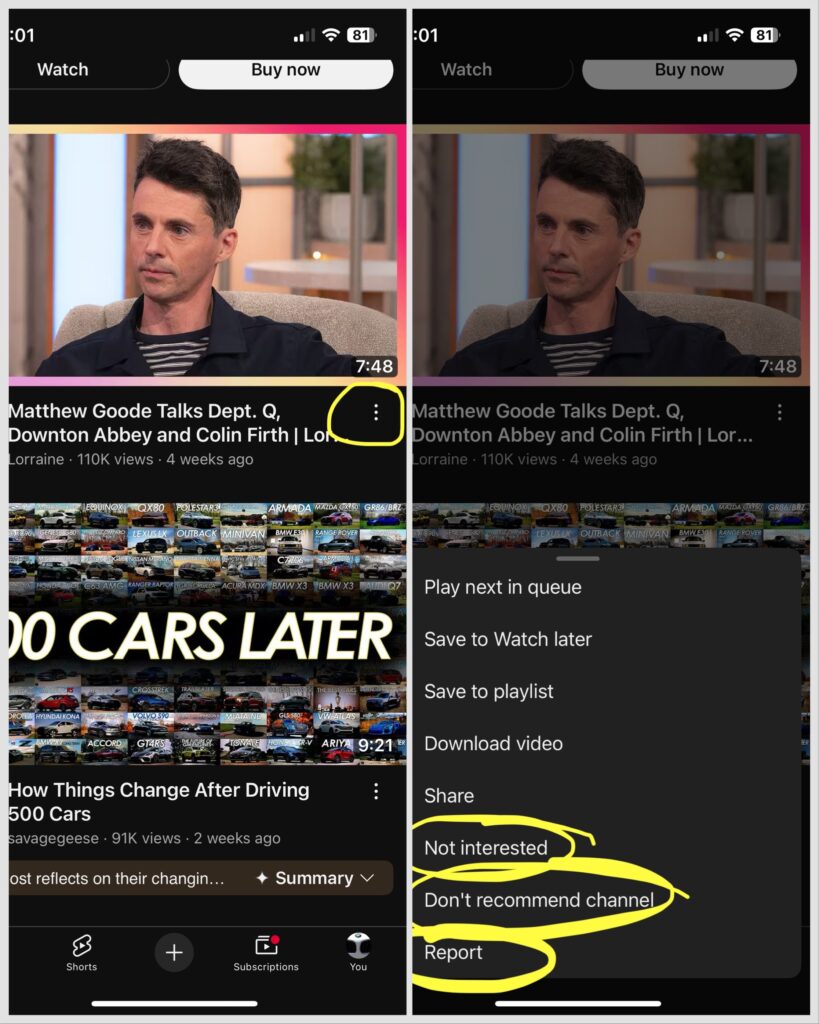5,561 words
Table of Contents:
- Preface (412 words)
- Introduction (409 words)
- Terms (816 words)
- The Deployment of Such Tools Online and Their Consequences (368 words)
- The Consequences on the Population that Relies on Such Online Tools (859 words)
- Methods to be Used in Navigating a Hostile Internet (1,445 words)
- Methods to be Used when Navigating People Who Rely on Unreliable Sources (1,075 words)
- Closing Thoughts (176 words)
- Preface:
The purpose of this article is to equip the reader with the necessary tools to navigate the internet during a particularly hostile period chapter of its existence. Methods in seeking genuine factual data, to differentiate signals from noise better, and ultimately to be cognizant of occurrences when you are dealing with people who have been relying on unreliable sources of information will be covered.
For this reason, then, efforts to make this article easier to read and more entertaining were disregarded. An 800-word companion article, which was more easily digestible, was discarded as a result. To have done either of the above would have gone against the very spirit of what spawned the necessity of this article, which was fueled by dozens of people over the last year coming to me with the same set of complaints. In reality, though those who suffer from a lack of endurance in reading or long-form reading comprehension skills would benefit most from such work, the chances of them reading, digesting, understanding, and employing the tools outlined are next to none. One has a greater chance of being murdered in their sleep by their pet paraplegic goldfish than the contents of an even shorter work on the topic having a positive impact on such an audience.
The primary audience of this article is those who suffer from poor internet literacy. This could be due to age, innately having proven a poor capacity when dealing with technology, or those who simply have not bothered to think about how they spend their time online. For those of you who have trouble keeping up or understanding terms and general detailed topics regarding technology, section three is there to give you a hand here and for other publications you will encounter.
If you are someone who is already well-versed in recent internet jargon and the space in general, the final three sections of this article would serve you best. The first five are an explanation for those who feel overwhelmed each time they look at their phone, tablet, or computer. From the discussions I had before publishing this article, those who thought that they were up to date on the topics covered in this article did not actually know all the terms and mechanisms. So, be warned about skipping any sections entirely.
Thus, this article is not for everyone, so if you are here for a leisurely read, it’s best you go elsewhere to make the best of your time.
Notes: On July 19th this article was updated with an additional item in its glossary, and an additional sub-section titled “The Practice of Pre-Bunking and Self-Inoculation” at the end of section 7. To prevent this article from becoming a textbook, it was written under the assumption that the reader has a basic college or university undergraduate degree of understanding of biology, behavioural, and cognitive psychology.
- Introduction:
At the time of writing, halfway through the year 2025, all citizens within most Western democratic societies – those not operating under an oppressive regime, and with a fair degree of freedom to access information – face a similar set of challenges. The problems that will be the focus of this article is derived from the starting point of having to rely on the internet for one’s worldview, and the many flawed tools and instruments which are deployed online. Additional factors, such as addiction and other psychological impacts, will be discussed and explored.
These defective tools, from the viewpoint of what is in the best interest of the general population, not how they best serve those who created them, in effect, expose the population to addictive content through their devices, which accompany them in every moment of their lives. This highly addictive and nearly endless content, which is most readily being pushed to the population, requires minimal cognitive effort to consume and, in return, offers minimal information and a low bar of quality for the entertainment, and the information itself being detailed or factual. The quality of the material consumed is addictive, for it keeps the user occupied but at a resting cognitive state. For more information on the consequences of this and methods for addressing them, I wrote an article about it here on February 23rd, 2023.
The mission of this article is to provide a set of tools for better navigating the internet, which does not have the user’s best interest in mind. More importantly, providing tools on how to deal with those who are overly reliant on the set of shoddy tools which the internet employs will be explored. To accomplish this effectively, the terms used by laypeople to those of publications on the matter help not only to define the problem but also on the best courses of action in ensuring one’s best interests are protected.
Lastly, the aim of this article is not for the reader to put away their mobile devices and leave the house to touch some grass, smell some flowers, and interact with other humans. It is an inescapable fact that the modern wonders of technology that we carry with us at all moments are a source of productivity, security, commerce, and comfort. This last point is where we will refine our focus, and hope that moving forward, you will have less of an adversarial relationship with your mobile device and the internet.
- Terms:
The terms in this section have multiple applications across many fields. The terms below are as specified and defined within the realm of discussion of this article: on how they are presented from the users’ experiences using the internet and the tools deployed on it.
Artificial Intelligence (AI): Large Language Models (LLMs) and similar programs, designed to predict which word or set of data comes next, do not generate the truth or facts, but rather what best conforms to the patterns they can source online. This can be either text or graphical representations, finding patterns in protein structures which greatly reducing medical research times, or that of military drones picking out targets that best match the set parameters of patterns it has been programmed to recognize and execute.
This modern and recent definition and application of the term is not to be confused with the traditional definition of a machine that can think across a near-infinite set of parameters. Multiple technologies have been lumped together under the term artificial intelligence, mainly to generate funding through investor excitement.
The confusion and fear surrounding artificial intelligence have been fueled by an inappropriate adoption of the term by large technology firms specializing in automation systems, which do not supplant human expertise. Commonly sourced programs dubbed as “AI” such as ChatGPT, have not exceeded the task-bearing capacities of an unskilled human in a given field. As an example, systems such as the program Grammarly have claimed to have reached expert status, the fourth on the scale below, but ask any writer or editor, and they, myself included, will argue that the program falls well within the emerging and second tier.
The scales of AI capabilities are:
- No AI (basic calculator)
- Emerging (unskilled human)
- Competent (50th percentile of skilled adults)
- Expert (90th percentile of skilled adults)
- Virtuoso (99th percentile of skilled adults)
- Superhuman (outperforms all of humanity)
The adoption of the term artificial intelligence has been made to create and to tap into a new set of capital without actually defining what AI or the end goal actually is. This is reminiscent of the constant and cyclical bubble economies that the technology sector has been creating for well over twenty years – this in itself is a much larger topic and one deserving of its own article. The threat of AI taking over jobs and careers in itself is overstated, for existing models are almost running out of data to pool their own performance from. Furthermore, the proposed synthetic data systemswhere AI generates its own data leave it open to accuracy and liability issues in practical usage in the real world.
At the time of writing, the field of artificial intelligence is in great flux, and you can find any viewpoint or opinion on the matter from experts. If anyone tells you definitively the future of the field, they are lying or speculating. This includes heads of the firms trying to sell such products and services. In general, just like other potential bubbles, such as crypto or financial products such as mortgage-backed securities, if the people involved cannot explain it in plain English exactly how it works, something is drastically wrong. Chances are that you are being sold something that the person in front of you themselves does not understand.
Thus, the automated systems that generate content such as deepfakes and ever-escalating images based on a user’s instructions are not artificial intelligence, but increasingly sophisticated automation programs.
Slop: A term used to describe the content created by AI tools or by humans which are vapid and offer no value. These are usually created to extend the screen time and impressions made by the users. Such content is frequently used in spaces often referred to as “chumboxes.”
Chumbbox: Digital space allocated online where any content would do.
An example of a chumbox is the discovery section of a social media platform, which has not yet accumulated any data to build a set of content catered to the specific user.
BOTS: A set of programs used to generate an outcome from users, often by imitating humans. Whether this be to click on a link or to influence their decision-making.
Examples of this are the 2024 EU referendum in Moldova where Russia spent over 1% of the small nation’s GDP on bots and active humans being garrisoned online to influence the referendum.
Bots are often supported by humans who are activated when a user is ensnared and their case is escalated.
Hostile Internet: A term used to describe the adversarial and manipulative experience that the internet seems to provide.
Algorithm: This is too wide of a term to be defined succinctly. Like AI, it can mean several things, from the strict definition of mathematics to that which is commonly used by the public regarding how their content is curated – by others or by themselves – for them by internet media platforms.
Users of various platforms usually blame the algorithm used as the reason for their poor experience.
Biased Assimilation of Information: The tendency for humans to avoid and reject opposing facts and seek out views and data which support their position, opinions, and worldview.
Pre-bunking: to pre-emptively dismiss a source or a person that/who is spreading misinformation.
- The Deployment of Such Tools Online and Their Consequences:
The common tools which are attributed to the hostile state of the internet are brought into service and utilized for efficiency from the standpoint of the business models of the platforms and by their clients and users. The focus on efficiency from an operational standpoint aims to reduce the involvement of humans, and subsequently their wages, in content generation and their employment across customer service departments. The reality has become that the reach of platforms has become so large that companies running said platforms cannot conceivably use a live workforce to service such an immense user base.
The drive for efficiency is not only driven by operations but also by how frequently a product or service can be monetized. The economies of platforms such as those owned and operated by META rely on screen time and impressions made on each user to generate profit. Within the scope of this article, the population has been exposed to content and information that can be viewed and digested as quickly as possible so that the next set of products and services can be viewed immediately. An example of this is posts or reels on Instagram, or shorts on YouTube. These all focus on short videos, or, in the case of Instagram, a photograph accompanied by a short caption, mainly used to drive more engagement and music to broaden the business model on an additional front.
Hopefully, this is common knowledge for users of these platforms and for those reading this article, but it requires addressing before moving forward. All of these short-form pieces of content are designed to keep the user’s attention and maximize their retention. Certain types of topics and genres do this best, and unfortunately, they are either of a cute, sexual or violent nature. These activate our limbic reward systems by releasing dopamine as positive reinforcement, which ensures that the user will keep scrolling. When this is accomplished successfully, we then experience a state called “doom scrolling,” where the user endlessly keeps devouring content on their personal device. If one bothers to curate their experience – “curating one’s algorithm” – then they will be exposed to content that better suits their tastes. This will be expanded upon in this article.

- The Consequences on the Population that Relies on Such Online Tools:
The challenge and the cause of the plight experienced by many occur when such systems intersect with the natural drive for efficiency among humans as organisms. Efficiency, in business terms and biological terms, each can have their own detrimental effects. Biologically, when certain physical, neurological or cognitive systems are either rarely or no longer in use, they deteriorate. Organisms have evolved in such a manner to divert precious energy to its systems that are in most demand and to prepare for periods of seasonal famine. This degradation process can quickly resemble one’s limb or capacity to conduct a certain task to being putrefied over a short period of time.
The business models of online platforms are formed, from social media to news sites that do not require a paid subscription, to simply keep the user on their site/app and to keep them stimulated as frequently as possible. As discussed in the prior section, this content can be analogous to candy or highly processed foods which offer no nutritional value; in this case the nutritional value having nothing to offer one’s brain.
The consequences of being exposed to only these forms of stimulating brief and short content, whether it be in video or written form at such a scale, is one of the primary reasons why citizens are misinformed, polarized, and lacking the necessary capacity to understand complex and nuanced problems. Coupled with public education systems with a poor foundation in history, geography, and science, it further handicaps the population’s capacity to understand long-form arguments, complex cases, and comprehension of basic mechanisms such as how a virus evolves.
As discussed in my article published over two years ago, one of the biggest failings of our digital devices is that they encourage us to enter a cognitive resting state. When entering this state, we are more vulnerable and pliable to remain in an activity in which our limbic reward systems are activated. The damage incurred on the general population by this addictive, inutile content has had vast consequences on our society.
With news stories reduced to a headline and a sentence, reading endurance and comprehension capabilities atrophy. Relying on sources which only reinforce one’s existing views or those which they are conditioned towards results in critical thinking faculties and the ability to analyze incoming data and information to emaciate. The aforementioned limbic reward systems are activated when a person feels seen and has their views corroborated and justified by others. It not only enforces a feeling of control over their environment, but a greater sense of belonging. This results in the more polarized society that we have witnessed in the last two decades. Finally, as more of the population becomes dependant on sources which are not verified or have been written by experts in a given field, their grasp on facts and reality becomes warped by their lethargy and constant need to be substantiated.
At gatherings, people whose grasp on details, facts, and reality is solely reliant on online sources or even worse, shoddy sources, I have lately been calling internet people as I try to navigate around them. They’re easily recognizable as the banal and proud who have no firsthand experience in anything they speak of. In work environments, they tend to repeat headlines that they perceive as tangential or of some consequence to the reason you are all there. In social gatherings, they parrot the general highlights from what they stumbled upon online. These people themselves operate on the same level as the aggregate automated systems, which technology firms would like you and potential investors to believe are artificial intelligence. If there is one point of irony to take away from this article, it is this. These humans haphazardly collect information which fits into the pattern or narrative on a given subject, and they verbally discharge what they remember. Their findings are considered gospel and rarely have any personal experience or that of any primary sources backing their beliefs.
The best example of this happened earlier in the year in a room which I was not in. A wife turned to her husband who is a lawyer about a legal matter. She was concerned about the potential of being sued if a child got injured on her property due to a basketball net on an adjacent property. The husband gave his opinion which was based on over two decades of legal practice, which was that nothing was stopping them from filing a suit, even though due to there being no outright injurious obstacles or items on their property and that the children were not invited onto their property, the suit would not go through. The wife, unhappy, turned to ChatGPT, which gave a counter opinion to which she treated as an undisputed fact. The same happens with patients that doctors call “Doctor Google,” who listen to the advice of search results rather than that of the practicing doctor whom they have gone to see.
If someone responds that they like to do their own research, they have no idea what they are talking about because they are merely referencing research done by other institutions, or most likely, non-peer-reviewed materials.
- Methods to be Used in Navigating a Hostile Internet:
Content Control on Online Media Platforms
There are some pretty simple methods which you can use to deal with an internet that has hostile intentions towards you, your time, and worldview. First, come to recognize the patterns which are glaring at your through your screen. Second, address the patterns in which result from your interactions from the usage of your mobile device.
On more than one occasion, I have had friends and colleagues complain about their experiences while on the internet. Some complained about being forced to watch sexually charged or explicit content. Hilariously, those who mentioned this only came to see it as a problem when someone else saw what was on their screen. Others mentioned, again the term of being forced to watch violent content on the many platforms online.
No one is being forced to watch anything. As stated in the previous sections, these platforms rely on the most tried, tested and true methods in keeping their users engaged and to maximize their screen time. This includes content which includes cute animals, sexually charged posts, or those with violence. The purpose of this article is not to convince others to never go on their phones, or even to use them less, but to use them more intelligently. This requires effort, which sadly most of the people whom I spoke to about this seem to not willing to put forward. This once again comes to the lowest effort being exerted by users, even if they know it is to their detriment.
Most platforms, from those from META to that of YouTube, have the option for the user to hide or to give the platform feedback as to what they do not like to see. When on a platform’s discover page, the user is presented with an option to hide and to give a reason as to why they do not want to be exposed to such content. The presentation of these options is not prominent, and is usually off to the side, requiring the user to seek it out. Below is an example of how Instagram and YouTube present this option to its users.

How to control your content on Instagram

How to control your content on YouTube
The biggest challenge for those who struggle with technology is making sense of graphic user interfaces. When such options are obscured or hidden away by a series of screen taps, it is of little wonder why people give into what the platforms are presenting them. A related matter on this topic are the many people I know who have never used primary functions in their cars because they are hidden away in the menus of their infotainment system – and usually by only one or two screen presses.
Regrettably, one’s efforts on these fronts will be constant for over time all of these platforms will resort to what works best for retaining the greater population’s attention. This is just one of the many places where the hostile “relationship” occurs between the population and these online platforms.
Control of Sources
While there are not many choices regarding social media or places where one can watch videos online, there still are plenty of options for legitimate news sites. With the degradation of news agencies, especially on the local level, finding accurate and trustworthy sources takes time, effort, and most importantly, money.
Once again, it comes down to the minimal amount of effort that the population is willing to put forward. Most of the population gets their news and headlines from the same places that they go to check up on how their crush from undergrad is doing and how much better off they are than themselves.
These social media websites, as stated above, curate their content to keep the user on their platform for as long as possible. When a user searches and stays on posts and content that are news related, the platform then attempts to provide them with similar content, almost. The content regarded as news that does well within these spaces are typically glorified, and sourced from illegitimate sources. Furthermore, the platforms use sources which reinforce the user’s current views, which brings us back to the Biased Assimilation of Information problem, and thus an ever-increasingly polarized population.
The answer to this is to pay for your news. Most of the people whom I have spoken to pay for multiple streaming services, such as Netflix and Disney+, along with paying for cable. Disconnect one of those services and be a better and healthier citizen by putting those funds towards a reliable and trustworthy news source. If you hold the position that sources like Reuters and the Financial Times are not to be trusted, I am surprised that you have made it this far into this article. Thankfully for those in North America, there are news aggregate services such as Apple News+. This service costs just under $20 Canadian, and includes world class publications and newspapers such as The Globe & Mail, The Wall Street Journal, The Atlantic, and The New Yorker. This service also includes many magazines, which offer you a quality alternative in the manner in which you spend your downtime on your phone. Reading such publications keeps your mind out of its resting state. Instead of mindlessly being hit with addictive content, you are actually engaging your brain’s reading and critical thinking skills.

An example of a paid news aggregator service such as Apple News+
There is always a time for rest, but the issue at hand is that the majority of the population is resorting to the harmful resting state of doom scrolling at every opportunity presented to them. Actively look at your patterns of behaviour. When do you reach for your phone? How often do you reach for your phone? What situations trigger your tendency to reach for your phone? An amusing behaviour to watch while out in restaurants is an entire table of adults reaching for their phone as soon as someone does so first. Be honest with yourself as to what improves your life, and make the adjustments accordingly as a responsible adult. You are responsible for how you spend the limited time that you have on this planet, and how aware of it you are.
The Stoic philosopher Lucius Annaeus Seneca wrote on a vast variety of topics, but his points about how one’s perception of the quality of their life has merit. From my own experience, those who spend most of their time towards their craft, cause, or loved ones, their life is perceived to be long and fulfilling. Those who spend their time dreaming about vacations, the next product to purchase, or simply doom scrolling on their phone mindlessly, all have had the exact same issues. When speaking to them, each one spoke about not knowing where the time went, and their memory recall is very poor. So much of their lives is spend staring at their phones when waiting between their obligations, that they end up living rather empty lives. Those who are dating, know this all too well. If you proceed to go on a second date with someone, you may soon realize that the person sitting across from them has nothing to offer besides their initial offerings the first date.
Besides putting yourself into a more vulnerable position of becoming ill-informed and heavily biased in all of your views, you also run the risk of becoming a mind-numbingly boring person by spending all of your time on your phone.
- Methods to be Used when Navigating People Who Rely on Unreliable Sources:
Unfortunately, the methods for dealing with those who have become overly reliant on such sources and systems are, at best, uncomfortable for everyone involved if not deployed tactfully. We’ll start with the mildest cases and then work our way up to avoiding inevitable conflict with those who have fallen prey to injurious forms of groupthink. Lastly, before bringing the article to a close, we’ll go over some tactics on how you can help yourself.
Group Chats and Shared Content Online
First, we’ll deal with those whom you primarily interact with through group chats across multiple platforms. Some of you may never interact with these friends in person. As discussed in the previous sections, taking control of the online platforms you use is crucial to maintaining a healthy relationship with your device and others. Unfortunately, there are many people in our lives who spend the majority of their downtime sharing content they find online. Twenty years ago, initially through email because it was free, these friends and acquaintances shared jokes, then memes, and eventually short videos they find amusing, all unsolicited. The consequence of opening the content shared is that you are informing the platform that it is being viewed on from your viewing habits. These platforms mine viewing habits and attempt to prolong their users’ stay by flooding their feeds with similar content. Thus, that person who thinks it is funny to share violent or sexually explicit content is unknowingly making the internet a lot more hostile a place for you to visit.
If the group chat is large enough, you can continue to not open and view what they are sharing, but if it is a small group or a one-on-one situation, they will notice that you are not reacting or viewing the content. Unfortunately, some people will take offence to this, and the sooner you tell them that you do not appreciate the shared content, the better. If they do not respect your wishes, and this will be a recurring theme in this section, they are not deserving of your time.
If someone is sharing content that you are outrightly uncomfortable with, you should feel no guilt in disconnecting all contact with them. If they do not have access to you in the physical world, the threat level from such a person is negated somewhat as long as you do not go out of your way to aggravate them. Needless to say, in cases of moderate to extreme pathology, there is little that you can do without the aid of a mental health professional.
The Threats of Memetic Viruses and their Carriers In-Person
Second, we will discuss those whom you meet in person, and especially those who want to spread their opinions sourced from irreputable and negligent sources. We have all heard about families and friends no longer speaking due to differing views on politics, but since the pandemic and its reverberations of the population has become overly dependent, and in a lot of cases addicted, to the internet, this has become a broader issue. It has been well documented and reported that there has been an increase in conspiracies infecting the manner in which a fair portion of the population thinks and behaves. Just like any memetic virus, the spreading of these theories and positions is inherently insistent in spreading in order to survive. Note: The science of memetics, the study of infectious ideas, has nothing to do with internet memes.
The threat level of dealing with this specific issue is higher than the first group we discussed earlier in this section because of the mechanism of a memetic virus. On a few occasions I have successfully been able to stop those I know in person to stop spreading their unfound theories and ideas they found online.
In one case, I just quietly smile in a comedic fashion, and they immediately stop, realizing that they are making me uncomfortable and that they have unintentionally slipped back into their bad behaviour. At least in one other situation, I terminated the friendship altogether because they simply did not respect my request.
Try to monitor when your friends, family members, or coworkers slip into this bad behaviour. For instance, I noticed that someone in my social circle would spill into their unintelligible conspiracy theories right after we ate a group meal. To solve this, regardless of the weather, I leave and take a ten-minute walk. When at a restaurant, I even hand the waiter my credit card on my way out to pay for my meal. Sometimes, eliminating oneself from the exact situation in which this sort of behaviour takes place is the easiest solution.
Those who suffer from following irreputable sources and tend to make it their identity are incredibly difficult to deal with. In my experience, unless I am a direct stakeholder in the individual’s welfare, I terminate all contact with them. Just like how this article’s aim is not to abandon your phone, which is the desirable trend at the moment, the mission of this article is to let you know that it is ok to let go of harmful people in your life and not to feel guilty. Often due to social pressure to keep our social and support circles as large as possible, and pressure usually applied by the harmful person themselves, people tend to stay in toxic and harmful relationships for far too long.
Do Not Discount Your Own Capacity to do Harm
Third and lastly, monitoring yourself with regard to when you share content or contentious views and why is necessary in order to ensure that you are not suffocating your friends with endless streams of trite and vapid content, or start talking about topics that might make others uncomfortable.
Over the next week, monitor if and when you bring up the news and share online content, and whether it is well received or simply tolerated. Like most people, were you bored and left with nothing to do? Did you just finish discussing an unrelated and uncomfortable topic, and thus in a slightly aggravated state? Are you sending and saying the same things that are being referenced from an online source to multiple people or groups? Have your social groups thinned out in arenas where you tend to share a lot of content and opinions? Have people asked you on more than one occasion to stop talking about a topic or to stop sharing content?
If you answered yes to any of the above questions after monitoring yourself for a couple of weeks, you may very well be the problem for others.
The Practice of Pre-Bunking and Self-Inoculation:
Sub-section updated on July 19th, 2025
Earlier this week, one person in a large group claimed that a leader of a significant country had been nearly assassinated. Looks of confusion flooded the room as most in attendance knew that this was not true. They knew that this was not true due to their practice of pre-bunking. They knew that the person in question who raised the piece of misinformation, had a history of doing so and of being vulnerable to believing fraudulent sources. There were a couple of people who frantically searched online to corroborate the story, but all came up empty. Yet, the person who brought this up fully believed it.
At the time of writing, AI summaries by search engines and automatically generated sources are being groomed by those with nefarious goals. Russia’s Pravda Network has been clocked at releasing more than 3 million propaganda articles a year, all of which are heavily sourced elsewhere.
Just as we can quickly judge a source as being fraudulent, we can do the same for people and their views, but this requires effort. One must be up to date on the general news at all times in order to inoculate oneself from the influence of those who either do not know any better or who are actively trying to cause harm by spreading disinformation.

- Closing Thoughts:
There is an old saying that “the internet is just other people,” and though this still mostly holds true, the digital landscape is shifting rapidly beneath our avatars’ feet. Automated programs, such as bots, which relied on humans if a case got escalated, have existed for quite some time now. Unfortunately, automated programs have gotten more sophisticated, and the platforms that we use with their profit driven models, along with those who are pioneering the civilian silo of what they are incorrectly calling artificial intelligence, have no idea where they are heading. With platforms not having your best interest in mind while having such technology deployed, it is all too easy to walk away and view your relationship with the internet and those who rely on it for their worldview as adversarial.
Just like everything else in life, a little effort will go a long way, and it is my genuine hope that you are now better equipped to have a healthier relationship with your online-enabled devices and with other actual humans in the analogue world.
Time of Writing: July 1st, 2025
Updated: July 19th, 2025
